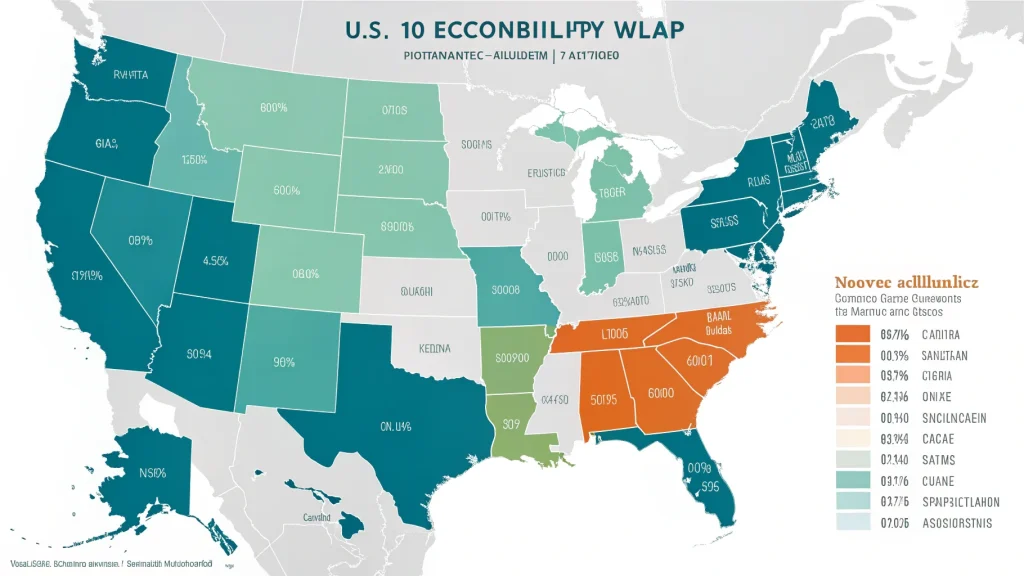Table of Contents
ToggleWhat Makes These Economies Vulnerable
The 10 states identified in the analysis share several common characteristics that contribute to their economic fragility. Many rely heavily on a single industry, leaving them vulnerable when those sectors experience downturns. Others struggle with persistent fiscal challenges, including budget deficits, underfunded pension systems, or limited rainy-day funds.
Some face geographic or demographic challenges, including population decline, workforce shortages, or limited access to major transportation networks and markets. These structural issues can hamper economic growth even during periods of national prosperity.
Regional Patterns and Historical Context
The list includes states from various regions, though some patterns emerge. Several states have historically lagged behind in economic development or struggled to transition from traditional manufacturing or resource extraction to more diverse, knowledge-based economies.
Past recessions offer insight into how these vulnerable states might fare in future downturns. During the 2008 financial crisis and the 2020 pandemic-induced recession, states with similar characteristics experienced deeper contractions and slower recoveries than the national average.
Key Economic Indicators
Multiple economic metrics signal these states’ vulnerability:
- Higher-than-average unemployment rates
- Lower per capita income and GDP growth
- Smaller budget reserves relative to annual expenditures
- Higher levels of state debt
- Less diverse economic bases
These indicators collectively suggest these states have fewer buffers against economic shocks and less flexibility to respond to changing conditions.
Potential Impact of a Recession
If a recession were to occur, these states would likely experience more severe consequences than their economically stronger counterparts. Job losses could be more pronounced, tax revenues might fall more sharply, and recovery periods could extend significantly longer.
State governments might face difficult choices between cutting essential services or increasing taxes during already challenging economic times. Residents may face greater hardship due to reduced public services, higher unemployment, and potentially increased outmigration to more economically resilient states.
“States with limited economic diversity tend to experience more volatile boom-and-bust cycles,” notes one economic analysis. “When a recession hits, they lack alternative growth engines to cushion the blow.”
Preparation and Mitigation Strategies
Despite their vulnerabilities, these states can take steps to strengthen their economic positions. Diversification efforts, workforce development programs, and building stronger fiscal reserves during periods of growth can help mitigate the impacts of recessions.
Some states have already begun implementing such measures, recognizing their vulnerable position and working to address structural weaknesses before the next downturn arrives.
Federal assistance programs also play a critical role in supporting vulnerable state economies during recessions, though the extent and nature of such support vary with each economic crisis.
As economic uncertainty continues to loom on the horizon, these 10 states face particular challenges in preparing for potential downturns. Their experiences highlight the uneven nature of economic resilience across the American landscape and the importance of structural economic strength in weathering financial storms.















